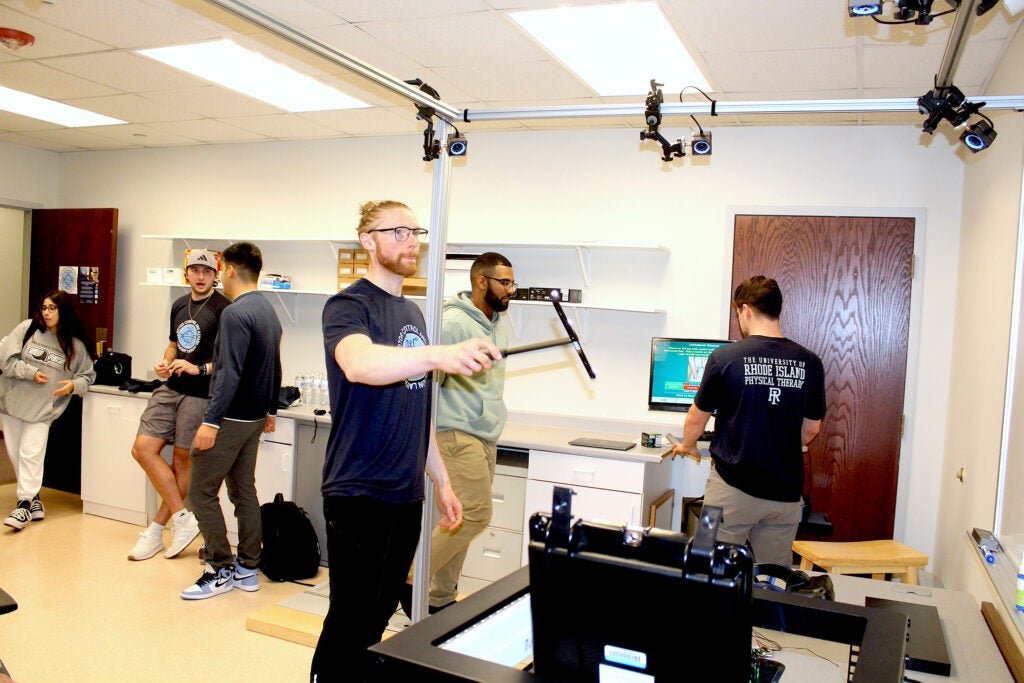KINGSTON, R.I. — May 17, 2023 — Demonstrating its advanced technology—including 3D motion capture, virtual reality, EMG and more—physical therapy Assistant Professor Mariusz Furmanek officially unveiled the College of Health Sciences new Motor Control and Rehabilitation Laboratory recently.
Located in Independence Square, the lab offers students, professors and researchers cutting-edge technology used to study neural control of movement. The lab’s mission is to:
- Expose students to research and evidence-based practice.
- Advance knowledge of human neural control of movement and avail this information to improve motor functions.
- Advance technologies for research and rehabilitation.

“By leveraging the technology available in the MCR lab, we can delve into the intricate mechanisms underlying movement,” Furmanek said. “Understanding how movement is controlled at the neural level provides valuable insights into the functioning of the brain and nervous system. Such knowledge is crucial in the field of physical therapy, as it enables healthcare professionals to design targeted interventions and treatments for patients.”
Furmanek hosted an open house in the lab last week, welcoming students and campus personnel to check out the technology and consider how the lab may assist in their research. Students in his lab demonstrated the motion capture technology and electromyography equipment (EMG) to measure and record the electrical activity of muscles. Participants donned the virtual reality goggles and tested their balance and weight distribution on the lab’s forceplate.
Participants also chatted with Furmanek and students in his lab about their ongoing research projects. David Ornstein, a Ph.D. candidate in physical therapy and kinesiology, is conducting a study to determine whether and how instrument-assisted soft tissue mobilization modulates electrical stimulation reflexes in both healthy individuals and those who have suffered a stroke. Ornstein aims to “assess their neuromuscular function, which may affect muscle tone and mobility.”
Physical therapy student Amanda Wheelock is using the lab to experiment with virtual reality, with the goal of determining whether it can be a treatment option for older adults who have movement difficulties. “I want to know how older people interact with virtual reality, how it affects their movement, and compare it to reality,” Wheelock said. “I want to see how they react to it to see if VR would be a viable treatment for them in the future.”
Furmanek is offering opportunities for researchers to collaborate with the Lab. Undergraduate and graduate students in neuroscience, computer science, engineering, kinesiology and health sciences are welcome to apply. For more information, email Furmanek at Mariusz.furmanek@uri.edu.

